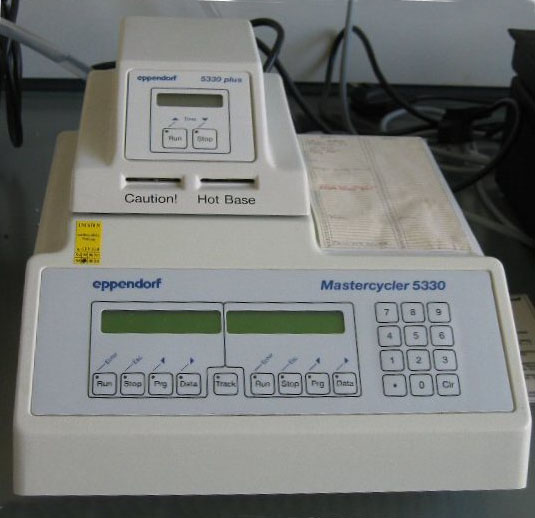Team:WashU/Notebook/PCR
From 2011.igem.org
(Difference between revisions)
J.herrmann (Talk | contribs) (→PCR Group) |
J.herrmann (Talk | contribs) (→PCR Group) |
||
| (One intermediate revision not shown) | |||
| Line 8: | Line 8: | ||
Once the gene synthesis order arrived, we added homology to the yeast genome and amplified the four genes. At this point we had homology at the beginning of the genes and a restriction site at the end. On the selection markers there was a restriction site at the beginning and homology at the end. Using a restriction digest, we attached the two linear pieces of DNA. We used PCR to check the success of the ligation reaction. | Once the gene synthesis order arrived, we added homology to the yeast genome and amplified the four genes. At this point we had homology at the beginning of the genes and a restriction site at the end. On the selection markers there was a restriction site at the beginning and homology at the end. Using a restriction digest, we attached the two linear pieces of DNA. We used PCR to check the success of the ligation reaction. | ||
| + | |||
| + | [[File:PCR.jpg|400px|thumb|center|]] | ||
Latest revision as of 04:07, 28 September 2011
PCR Group
The PCR group began the summer by practicing the technique on extra DNA samples. Once we obtained successful results and chose the best PCR protocol, we added homology to the yeast genome and a restriction site to the ends of four yeast selection markers. We performed this PCR multiple times to optimize the reaction.
Once the gene synthesis order arrived, we added homology to the yeast genome and amplified the four genes. At this point we had homology at the beginning of the genes and a restriction site at the end. On the selection markers there was a restriction site at the beginning and homology at the end. Using a restriction digest, we attached the two linear pieces of DNA. We used PCR to check the success of the ligation reaction.
 "
"

